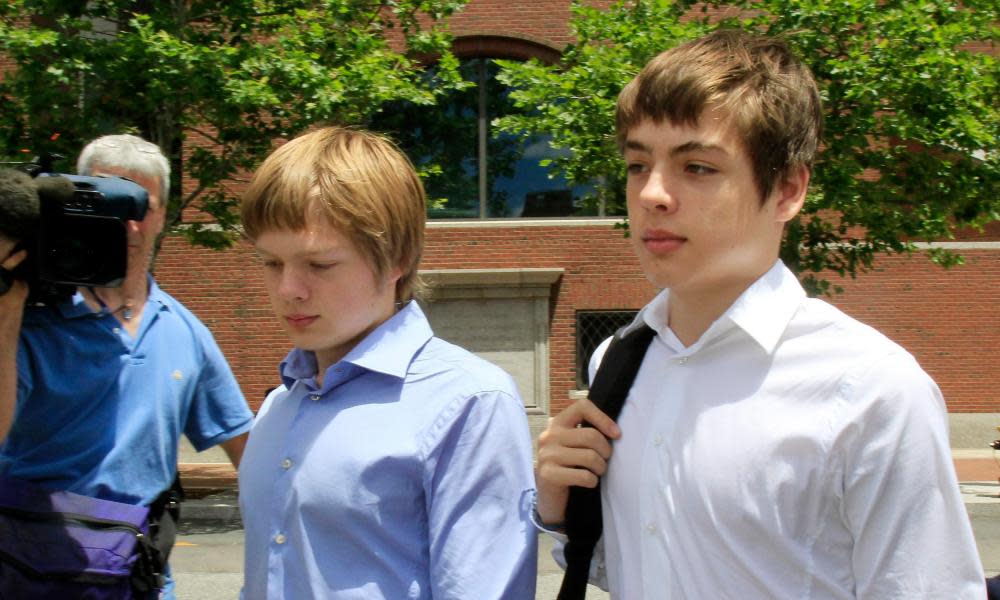Son of parents exposed as Russian spies has Canadian citizenship restored

The son of two deep-cover Russian spies has had his Canadian citizenship restored after a long legal battle. The Canadian government had stripped Alex Vavilov of his citizenship after his parents were exposed by the FBI as KGB spies who had spent several decades pretending to be Canadian.
Vavilov was born Alexander Foley in Toronto and grew up in France and the US, believing his parents were Canadian-born naturalised Americans. However, in 2010, his parents were arrested by the FBI in a roundup of 11 Russian spies. At the time, Alex was 16.
Alex and his older brother, Tim, were given Russian citizenship under the names Alexander and Timofei Vavilov, but even now speak little Russian and say they feel no real connection to the country.
Alex and Tim were both stripped of their Canadian citizenship, because of a provision that “children of foreign government employees” are exempt from Canada’s birthright citizenship.
“I feel like I have been stripped of my own identity for something I had nothing to do with,” Alex Vavilov told the Guardian last year.
Now a Toronto court has overturned that decision.
In emailed comments after the verdict, Alex said he felt “vindicated and happy that justice prevailed in the end”.
“If someone commits an offence we do not take away their citizenship,” said Hadayt Nazami, the lawyer for both brothers. “Rather, they can be prosecuted under a law intended for that purpose. But even then we apply legal standards and we do not punish children on the account of their parents’ conduct.”
The boys’ parents were born Andrei Bezrukov and Elena Vavilova, but were recruited by the KGB as “illegals” – deep-cover agents who impersonate foreign citizens. The pair were sent to Canada by the KGB in the 1980s, where they adopted the identities of dead Canadians: Donald Heathfield and Tracy Ann Foley. Both of their sons were born in Canada; the family later moved to France, and then to the US, where they also became nationalised citizens.
Bezrukov and Vavilova were arrested along with nine other Russian spies, including Anna Chapman. The FBI had tracked them for years. It is unclear whether they ever succeeded in accessing sensitive information, but FBI intercepts reported contacts with former and current American officials.
The group were betrayed by an SVR officer who defected shortly before the arrests were made. Bezrukov now works as a political analyst and advisor to the president of Rosneft, a state-run oil giant run by one of Vladimir Putin’s closest associates, Igor Sechin.
At the time of the arrests, Alex and Tim were 16 and 20 respectively. The pair now live outside of Russia but have had problems obtaining visas for European countries due to their family history. Alex had won a place to study at a Canadian university but had to give it up after his visa was revoked at the last minute.
The brothers told their story to the Guardian but have rejected all other requests to speak about their unusual life experience, and hope that the court decision will mean they can turn over a new page. “I am eager to exit the spotlight and get on with my life,” Alex wrote.
The Canadian government now has 30 days in which it can appeal the decision and take the case to the supreme court, but Nazami hopes this will not happen, and also believes a similar decision should follow in the case of Tim before long.
“Alex and Tim have suffered a great deal of hardship, starting from when they were children, through no fault of their own,” said Nazami. ‘Hopefully, with this decision they can finally return to the only country they have rightfully known and considered to be their home so that they can begin their healing process and put their lives back in some order.”

 Yahoo News
Yahoo News 
